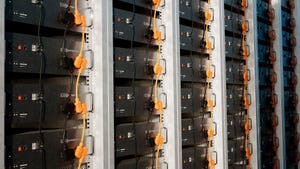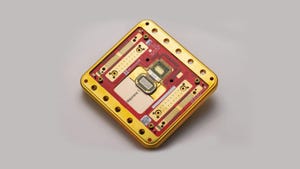Data Center Plumbing: A Guide to Cooling, Efficiency, and SustainabilityData Center Plumbing: A Guide to Cooling, Efficiency, and Sustainability
Understanding data center plumbing is key to maintaining cooling, efficiency, and reliability in modern facilities. Here’s what you need to know.

When you hear the phrase “data center plumbing,” your mind might first go to the digital infrastructure – networking devices, cables, and so on – that integrates the IT equipment within a data center.
However, in another sense, data center plumbing refers to the actual plumbing systems, in the form of physical pipes, that data centers depend on to operate. Those systems may not receive much attention, but designing and maintaining them effectively is just as critical to managing IT equipment inside data centers.
With this reality in mind, here’s a primer on data center plumbing, including which roles pipes play in data centers, which unique challenges plumbing systems pose in this context and strategies for optimizing data center plumbing performance reliability.
Why Do Data Centers Need Plumbing?
As buildings whose primary occupants are servers and other IT equipment, not people, data centers may not seem like they need plumbing systems beyond those necessary to serve a small bathroom for the few technicians who service IT equipment.
But plumbing is critical to data center operations. In particular, data center cooling systems rely on piping to circulate chilled water or other fluids in facilities that use liquid cooling. For data centers that use more traditional chilled-air cooling, pipes are necessary to remove the condensate that collects around air conditioning units.
Some data centers also rely on plumbing systems to distribute fire suppression materials. Typically, these exist in the form of gases, like FM-200, which data centers use instead of water to extinguish flames without damaging humidity-sensitive IT equipment.
The Challenges of Data Center Plumbing
Unlike most other types of facilities, data center plumbing systems must address certain unique challenges, impacting the piping types that can be used within data centers.
Key data center plumbing challenges include:
Ensuring pipe reliability: Given the mission-critical role of pipes in data centers, ensuring they are highly reliable is a priority. A leak might cause catastrophic damage to servers. A failure like a blocked pipe could be just as destructive if it causes cooling systems to stop working correctly and makes IT equipment overheat.
Preventing condensation: Condensation can form on pipes when the temperature of the fluid inside the pipe differs from that of the ambient environment. This can lead to drips or puddles of water that could damage IT equipment.
Mitigating electrical shorts: If pipes inside data centers become conduits for electrical current or repositories of static electricity, they could release charges into any IT equipment they touch, potentially causing damage.
Carrying specialized materials: While some data center plumbing systems only conduct water, others need to carry special materials, like dielectric fluids or gases.
Choosing Effective Data Center Piping
Standard plumbing materials often don’t suffice inside data centers. Traditional copper or other metal pipes are prone to condensation and may form interior blockages over time, increasing the risk of system failure and carrying electrical current easily. Therefore, metal piping for data centers is rare.
However, widely used plastic piping materials have their drawbacks as a data center plumbing solution, too. Chlorinated polyvinyl chloride (CPVC) – one type of plastic piping commonly installed in other buildings – relies on glue to connect pipes, and because the glue can break down over time, it’s not an ideal material for mission-critical plumbing needs.
Pex, another type of plastic pipe, is commonly used in data centers, especially within water-based cooling systems. Pex is resistant to corrosion and typically uses mechanical connections that are less prone to failure than glue. However, Pex can be less suitable for plumbing needs that involve high pressure. In addition, Pex is easy to cut, making it a potential target for physical attacks against a data center.
To mitigate these challenges, some data centers adopt more specialized types of plastic piping material, including high-density polyethylene (HDPE) and polypropylene (PP). These are stronger than Pex, making them better suited for scenarios where plumbing reliability is paramount.
Data Center Plumbing Best Practices
Beyond choosing the right plumbing material for a data center, additional steps can help minimize the risk of problems:
Where possible, avoid running plumbing over or near servers. That way, leaks won’t immediately damage equipment.
To minimize condensation risks (which can occur with plastic piping, even though plastic is more resistant to condensation than metal), install pipes in spaces where ambient temperatures are close to those of the material inside the pipe.
Protect flexible piping (like Pex) from physical damage by keeping it out of areas that technicians normally access.
To the extent possible, minimize connections between pipes since connections are more likely to become points of failure than piping itself.
Why Data Center Plumbing Matters
From liquid cooling to fire suppression, data center plumbing plays a vital role in ensuring uptime, efficiency, and sustainability in modern infrastructure.
Properly designed systems help manage heat, reduce water waste, and support high-density computing, making them essential for future-ready facilities.
About the Author
You May Also Like









